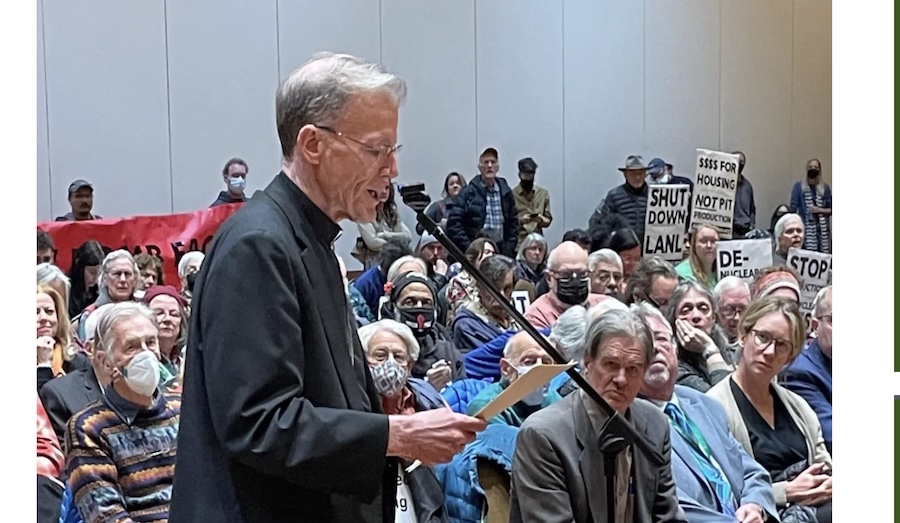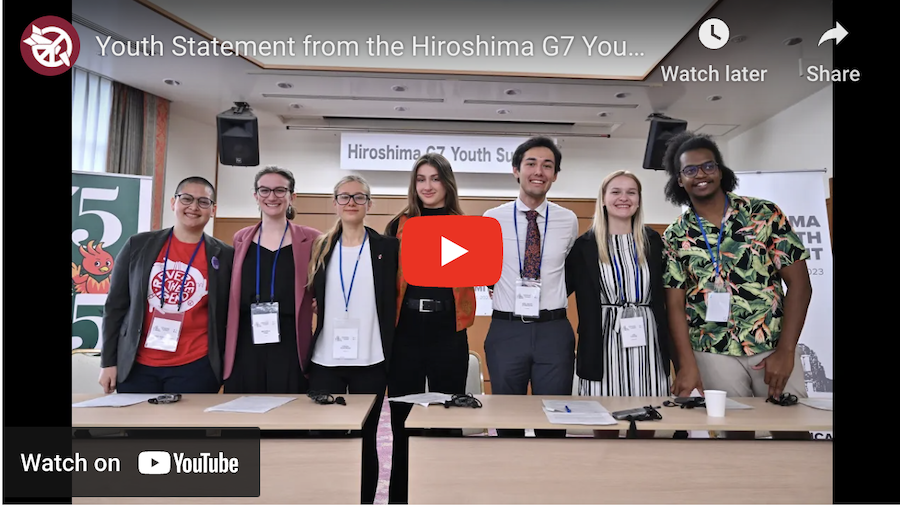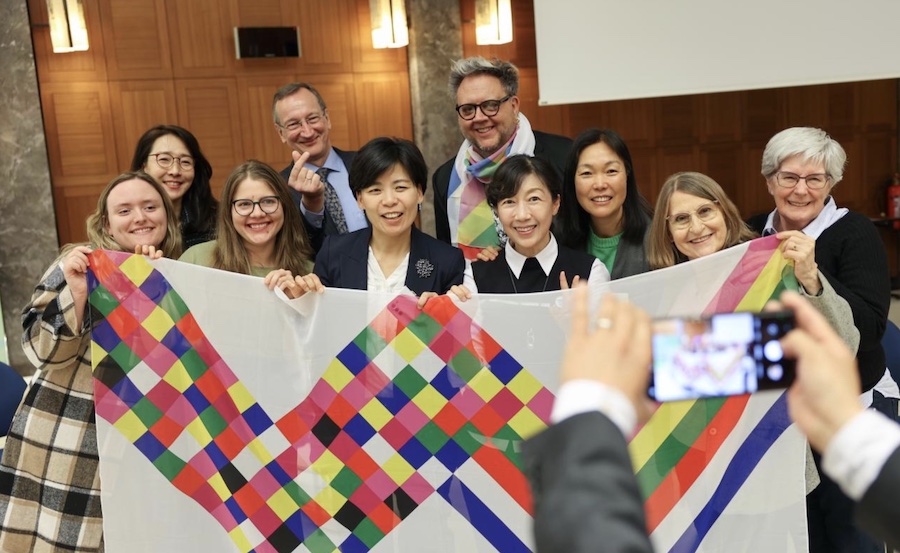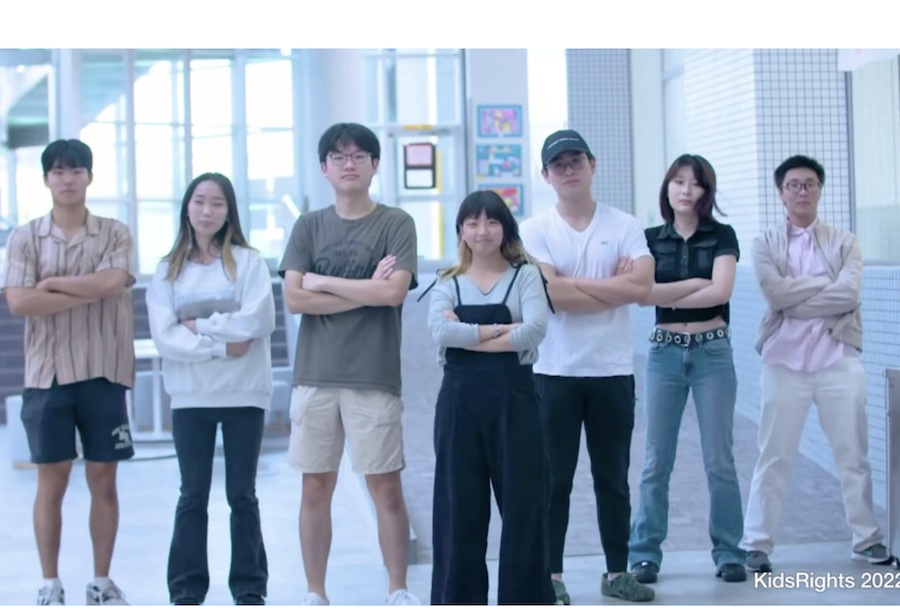. EDUCATION FOR PEACE .
An article from The Educator on line
American cultural anthropologist Margaret Mead once said, ‘Never doubt that a small group of thoughtful, committed citizens can change the world; indeed, it’s the only thing that ever has.’
As societies grapple with escalating global tensions and the increasingly visible effects of militarisation, one small group of thoughtful, committed citizens is aiming to do just that.
Set up in 2022 following a philanthropic grant, Teachers for Peace has been working tirelessly to steer the narrative towards peace and disarmament in the one place where many of children’s core ideas are formed – the classroom.

A particular focus of the group is to counteract the normalisation of war, challenging the influence of the weapons industry on school STEM curricula, and advocating for policies that promote peace.
Teachers for Peace director Elise West is also the Executive Officer of the Medical Association for Prevention of War, Australia – a national network of health professionals which works from a basis of medical ethics to advocate and educate for peace and disarmament.
“We are building on the long history of teacher advocacy for peace and disarmament, and – in our specific goal of eliminating weapons company influence in education – on the work of organisations Medical Association for Prevention of War and Wage Peace,” West told The Educator.
`
We are currently pursuing our strategy for change, building connections, and growing our membership – current and former teachers, education workers, and students are all encouraged to join us.”
Militarism is growing worldwide, but it doesn’t have to here
West’s call for action comes at a critical time in Australian – and indeed world – history.
Increasingly worried about China’s burgeoning military and the superpower’s deepening ties with Russia, Australia’s key ally, the United States has been rallying support for a more assertive force posture in East Asia that includes new military pacts.
The AUKUS security pact, announced in September 2021 between the United States, Britain and Australia, includes a $368bn deal to build nuclear-powered submarines for the Royal Australian Navy.
While the Federal Government emphasises that aim of the alliance is to upgrade Australia’s ageing submarine fleet, there are growing concerns it could worsen diplomatic relations with our largest trading partner, China, which perceives the AUKUS alliance as a counterproductive influence in an already tense and volatile region.
Another concern is that the STEM arm of the AUKUS project is beginning to reach deep into the nation’s schools, foreshadowing a quiet recruitment drive by the Defence Force.
“Some of the world’s biggest weapons companies influence STEM education through sponsorships, partnerships, events, competitions, and more,” West said. “These companies profit from war and insecurity; some of them are associated with weapons of mass destruction, alleged crimes of war, human rights breaches, and corporate misconduct. They should not advertise to children.”
In a 19 June press release, the Royal Australian Navy unveiled a nationwide “Nuclear-Powered Submarine Propulsion Challenge” in high schools, which it touted as “an opportunity for students to gain a greater appreciation of the STEM principles behind the [AUKUS] project”, and a gateway for careers as “submariners, engineers and technicians.”
“The classroom curriculum provided through this program seeks to inspire students to be more engaged with STEM subjects and see how they are practically applied in the real world,” Rear Admiral Jonathon Earley, Deputy Chief of Navy, said.
“The winners [of the Challenge] will experience a visit to HMAS Stirling in Western Australia, tour a Collins-class submarine, dine with submariners and virtually drive a submarine through Sydney Harbour in the submarine bridge training simulator.”
Education equity till 2040 – for the cost of a single submarine
The NSW Teachers Federation recently issued a statement opposing the AUKUS project stating, “there have been too many times in history when warmongering and armaments build-up have led to international conflict, death and destruction.”
“The agreement compromises the pursuit of an independent foreign policy and has the potential to drag Australia once again into foreign conflict and war,” NSWTF president, Angelo Gavrielatos said.
Gavrielatos said recent “alarmist, war mongering commentary, deployed in an attempt to bolster unsubstantiated predictions of an inevitable war with China” is of deep concern to the Federation.
“For less than the price of one nuclear submarine, the Federal Government could fund the SRS shortfall for the 13 years of school of two cohorts of kids [26 years] till 2040, which coincides with the reported arrival of the first submarine,” he said.
“By that time, the submarines we’re due to receive may well be outdated technology.”
West agrees, saying there is far too little discussion about the real consequences of war and militarism for young Australians, and for young people everywhere.
“The consequences of war for people and the planet are devastating; they devastate for generations. But even before actual conflict occurs, great harm can be caused by things like over-investment in the military, racist and xenophobic framings of others – and by pessimism,” she said.
“Right now, we’re being told to ‘prepare’ for Australia to [willingly] involve itself in a U.S-China war in the next 3-20 years: that’s a profoundly pessimistic vision of the future for our young people. We can and should be doing more to ensure peace.”
Indeed, the stakes of such a war between the U.S and China are higher than most realise, as Max Boot, a columnist, a senior fellow at the Council on Foreign Relations, wrote in a recent op-ed in the Washington Post:
“The risk of nuclear escalation is all the greater because, as a senior U.S. admiral explained to me, it would be difficult for the United States to win a war over Taiwan by attacking only Chinese ships at sea and Chinese aircraft in the skies. The United States could find itself compelled, as a matter of military necessity, to attack bases in China. China, in turn, could strike U.S. bases in Japan, South Korea, the Philippines, Guam, even Hawaii and the West Coast.”
Suffice to say, how such a war between two nuclear-armed superpowers evolves from there is the stuff of nightmares.
What does peace education look like?
On 26 October 1984, the Australian Teachers Federation held the Symposium on Peace and Disarmament in Melbourne, where the Minister for Education & Youth Affairs at the time, Senator Susan Ryan, declared her support for peace education in the curriculum.
(Article continued in right column)
Question related to this article:
What is the best way to teach peace to children?
(Article continued from left column)
Addressing the symposium, Senator Ryan said the transition of peace studies into educationally acceptable programs was “just beginning”, and outlined some of the things she wished to see included in peace studies programs in Australian schools:
These included:
* A consideration of what might be termed ‘human rights and welfare’, which could include an examination of poverty and social problems associated with the unequal distribution of power;
* Development issues, which would involve an examination of the developed world’s response to third world issues;
* An investigation of ‘conflict and war’, which would deal with the history of militarism, warfare, the arms race, weapons technology and the issue of disarmament;
* Major global issues such as the historical development of nationalism and its effects on world events, particularly war;
* Some consideration of personal development and the importance of conflict resolution.
“Much still has to be done before peace education can become an accepted and approved reality in Australian education,” Senator Ryan said.
Peace education is not a matter for one government or one organisation. A concerted effort among Commonwealth and State Governments, non-government education authorities, teachers, and the general community is needed.”
Encouraging signs of change
West said there are positive signs of change in Victoria and Queensland, whose governments have updated their learning materials and sponsorship policies to recognise that companies that make weapons are inappropriate partners for schools.
“This is a great step forward, and we’re happy to be engaging with the NSWTF to seek similar changes in NSW,” West said.
A spokesperson for the NSW Department of Education said the government has today updated its Commercial Arrangement, Sponsorship and Donations policy to exclude weapons manufacturers.
“Schools are not permitted to engage with organisations that make harmful products including unhealthy food, tobacco, alcohol products, gambling products, weapons manufacturing, or anything illegal,” the spokesperson told The Educator, adding the changes to the policy are now live on the Department’s website.
A spokesperson for the Queensland Department of Education told The Educator the Department’s Education’s Sponsorship procedure specifies “unacceptable” sponsorship organisations, which include those that are involved in the manufacturing or selling of weapons, including guns.
“The Sponsorship procedure ensures the department – including our schools, programs and initiatives – is not affiliated with organisations that manufacture, distribute or are associated with the use of weapons.”
No, war is not inevitable
In 1931, an article that appeared in the British newspaper The Times quoted Mahatma Gandhi as saying, “If we are to reach real peace in this world, we shall have to begin with the children”.
There are others however, from Sigmund Freud to Leo Tolstoy, who have argued that war is an inevitable event; an ingrained feature of human nature.
In 1932 Albert Einstein asked Freud, ‘Is there any way of delivering mankind from the menace of war?’ Freud answered that war is inevitable because humans have an instinct to self-destroy, a death instinct which we must externalise to survive.
Leo Tolstoy’s ‘War and Peace’ asserts that war, fuelled by inherent human aggression and ego, inevitably imbues life and death with meaning, and is therefore here to stay.
Likewise, Hungarian-American psychoanalyst Franz Alexander, peacetime is nothing more than “a period of preparation for future wars that are inevitable”.
Another example of war’s supposed inevitability that is sometimes brought up is that if a large, powerful nation wants something it cannot get by non-violent means from a smaller, weaker nation, it will invade that country to seize it – whether that be mineral resources, or land that is of religious or cultural significance – by force.
So, is war really inevitable? And are ongoing efforts aimed at getting kids to un-learn this seemingly inbuilt feature of humanity nothing more than a fanciful endeavour?
The answer to that question is, fortunately, no.
More than four decades of study into the drivers of aggression reveal that peace does, in fact, have a real chance.
Henri Parens, groundbreaking psychiatrist and psychoanalyst, author, and inspirational Holocaust survivor, published a book in 2014, titled: ‘War is Not Inevitable: On the Psychology of War and Aggression’, in which he argues that our historical tendency towards destructiveness stems from excessive psychic pain rather than an inherent aggressive drive.
“Humans have the capacity to choose peace over violence,” Parens wrote. “We need to educate ourselves about the causes of war and develop strategies for preventing it. We also need to create a culture of peace, where people are taught to resolve conflict peacefully.”
In this context, schools have perhaps the most important place of any institution when it comes to making meaningful changes. After all, today’s young people will become tomorrow’s leaders.
On June 12, two-term Illinois governor J.B. Pritzker gave a commencement speech at Northwestern University in Evanston, Illinois, in which he distinguished an unevolved society from an evolved society by explaining it in terms of empathy and compassion.
“When we see someone who doesn’t look like us, or sound like us, or act like us, or love like us, or live like us — the first thought that crosses almost everyone’s brain is rooted in either fear or judgment or both. That’s evolution. We survived as a species by being suspicious of things we aren’t familiar with,” he said.
“In order to be kind, we have to shut down that animal instinct and force our brain to travel a different pathway. Empathy and compassion are evolved states of being. They require the mental capacity to step past our most primal urges.”
Pritzker continues: “I’m here to tell you that when someone’s path through this world is marked with acts of cruelty, they have failed the first test of an advanced society.”
Schools are where peace can begin, and war can end
Pointing to today’s precarious geopolitical climate, West said there is perhaps no better time than now for schools to ramp up peace education than now.
“There is a long tradition of Australian educators teaching the importance of peace across the curriculum. Schools’ focus on things like tolerance for difference, or restorative approaches to conflict, are also great examples of how education contributes to a more peaceful society,” she said.
“In our current geopolitical climate – with the prospect of war looming – we think there’s also a need to loudly and explicitly challenge the normalisation of war, examine the underlying causes of conflict, and to ask who suffers – and who benefits – when war happens.”
West said rejecting the influence in education of corporations that profit from war is “a concrete action” schools can take to foster future leaders who can take up this challenge.
“School principals play an absolutely definitive role in eliminating harmful influence in education, and we’re here to help them do just that,” she said.
“Principals can choose not to participate in programs branded by weapons companies, adopt internal policies on the matter, ask education departments to improve policies, and ask their favourite STEM programs to reconsider their association with companies that do harm.”









